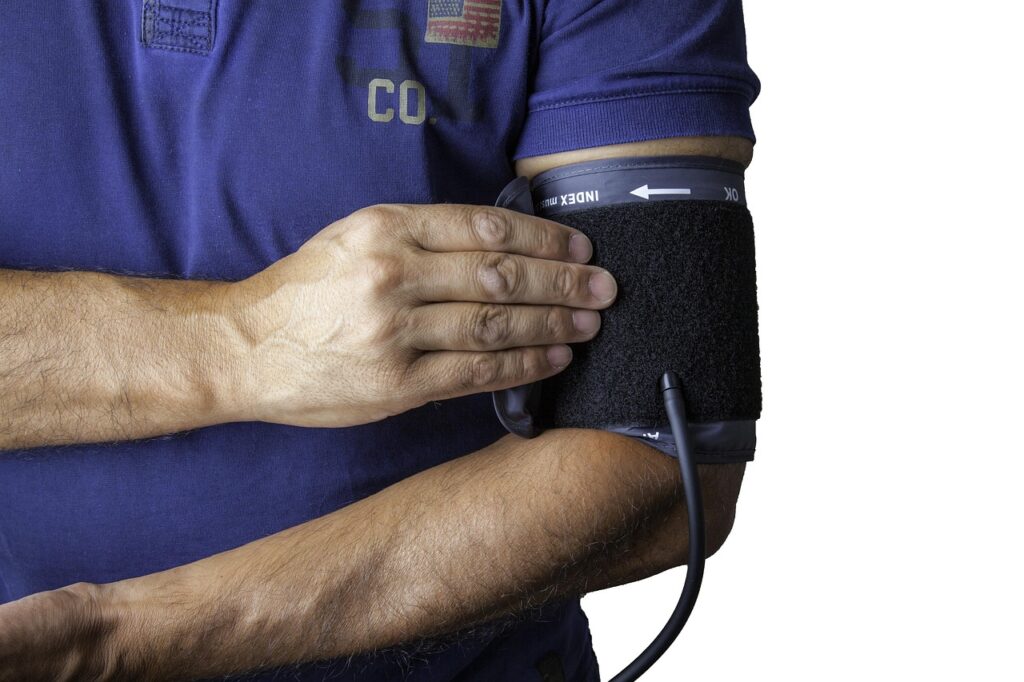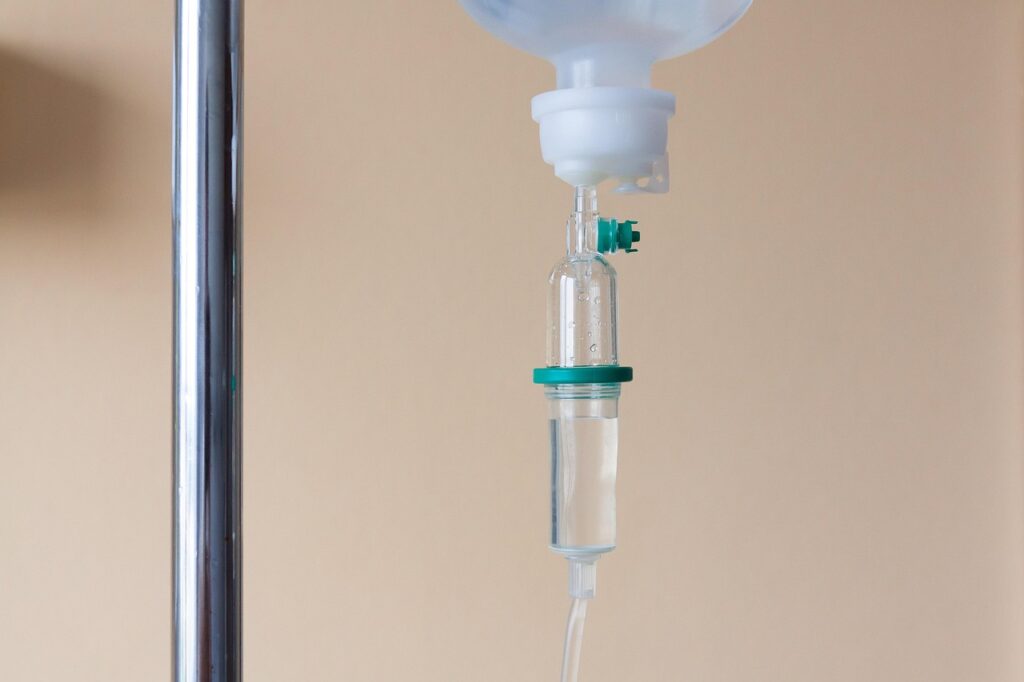Safe, compassionate care to help you break free
Barbiturate Addiction Treatment
Barbiturates are powerful sedatives that can quickly lead to dependence and life-threatening withdrawal symptoms. At Quadrant Health, we provide expert, medically supervised treatment to help you safely detox, stabilize, and begin your recovery journey. With personalized care and evidence-based support, healing is always within reach.
Safe, expert care to overcome barbiturate addiction and start recovery.
Combatting Addiction Is Hard. Get the Right Care
UNDERSTANDING BARBITURATE ADDICTION
Barbiturate addiction is a form of substance use disorder involving the misuse of barbiturates, sedative-hypnotic drugs once widely prescribed for anxiety, insomnia, and seizure control. Common barbiturates include phenobarbital, amobarbital, and secobarbital. Although their medical use has declined in favor of safer alternatives, barbiturates are still misused for their calming and euphoric effects, often leading to tolerance, dependence, and addiction.
When taken in high doses or over extended periods, barbiturates can slow brain activity to dangerous levels, increasing the risk of overdose, respiratory depression, coma, and death. Users may struggle to quit due to severe withdrawal symptoms, including anxiety, tremors, hallucinations, and seizures. Without proper detox and clinical support, relapse is common.
At Quadrant Health, we specialize in evidence-based barbiturate addiction treatment that addresses both the physical and psychological components of dependency. If you or someone you love is misusing barbiturates or showing signs of sedative dependence, early intervention can be lifesaving.

HOW TO RECOGNIZE BARBITURATE ADDICTION?
Barbiturate addiction can be difficult to detect, especially when use begins with a prescription. Here are some signs that barbiturate use may have developed into a substance use disorder:
- Growing tolerance requiring higher doses to feel the same effects
- Using barbiturates more frequently or in larger amounts than prescribed
- Combining barbiturates with alcohol or other substances
- Drowsiness, slurred speech, or impaired coordination
- Mood swings, memory issues, or cognitive decline
- Inability to cut back or stop despite negative consequences
- Withdrawal symptoms such as anxiety, tremors, or seizures when not using
If you recognize these symptoms in yourself or someone you care about, early intervention can prevent serious health risks. Contact our team at (888) 970-6234 for a confidential assessment.
RISK FACTORS FOR BARBITURATE DEPENDENCE
Barbiturate dependence often develops gradually, shaped by a mix of psychological, genetic, and environmental factors. People dealing with chronic stress, anxiety, or past trauma may be more vulnerable to misusing these medications as a way to self-soothe or escape.
A family history of addiction or co-occurring mental health disorders can also increase the likelihood of dependence. In many cases, barbiturates are prescribed over long periods without proper monitoring, which raises the risk of misuse. Individuals who use the drug to cope with emotional pain or sleep disturbances may unknowingly build a dependency.
Recognizing these risk factors is a crucial step in preventing addiction and ensuring early intervention. If you’ve been prescribed a barbiturate and are concerned about your use, a professional evaluation can help clarify the next steps toward recovery.
Recovering from babiturates addiction Is Possible
Hear from our alumni who’ve overcome barbiturate addiction and rebuilt their lives. Our network of accredited facilities provides hope, healing, and lifelong support.
The dangers of barbiturates Addiction
Understanding the toll on your body, mind, and life
Health risks
Barbiturate addiction takes a serious toll on both physical health and quality of life. As dependence deepens, the effects can ripple outward. Understanding these consequences is essential to recognizing the urgency of seeking professional treatment:
- Respiratory depression and slowed heart rate
- Increased risk of overdose, especially when mixed with alcohol or opioids
- Memory problems and cognitive decline
- Job loss or academic failure due to impaired functioning
- Strained or broken relationships with family and friends


Risk of overdose
Barbiturate overdose is a life-threatening emergency that can occur even in individuals with a high tolerance. Because the difference between a therapeutic dose and a fatal one is so small, the risk of accidentally taking too much is dangerously high, especially when barbiturates are mixed with alcohol, opioids, or other sedatives. An overdose can cause slowed or stopped breathing, loss of consciousness, and irreversible brain damage within minutes. Unlike some other drugs, there is no antidote for barbiturate overdose, making immediate medical intervention critical.
If you suspect someone is experiencing a barbiturate overdose, call 911 right away. Every second counts.
Why you shouldn't detox by yourself
Detoxing from barbiturates without medical oversight can be dangerous, and in some cases, life-threatening. While the idea of quitting “cold turkey” may seem appealing, the withdrawal process involves significant physical and psychological risks that should never be faced alone. At Quadrant Health, our professional detox team ensures you’re medically stable, closely monitored, and supported every step of the way, reducing the risk of complications and relapse.
Barbiturates withdrawal symptoms
Withdrawal from barbiturates can begin within hours of the last dose and varies depending on how long the drug was used, the dosage, and whether other substances were involved. Even people who began with a prescription may face intense symptoms once physical dependence develops. Here’s what withdrawal may look like:
- Mild symptoms: often include anxiety, restlessness, trouble sleeping, and hand tremors, early signs that the body is reacting to the absence of the drug.
- Moderate symptoms: may involve nausea, muscle aches, an elevated heart rate, and emotional instability such as agitation or mood swings.
- Severe symptoms: can be life-threatening and include hallucinations, seizures, delirium, and dangerous drops in breathing rate, requiring immediate medical attention.
Take action before bad dammage. Call +1-888-8888
The phases of barbiturates withdrawal:
Withdrawal typically progresses through distinct phases, each presenting its own set of challenges. Understanding these phases helps prepare you, or your loved one, for what lies ahead and underscores the need for professional medical care. Detox at a licensed facility ensures each stage is safely managed.
Early withdrawal
Symptoms typically begin 6 to 24 hours after the last dose. This phase may involve anxiety, restlessness, sweating, and insomnia as the body starts adjusting to the absence of barbiturates.
ACUTE WITHDRAWAL
This stage peaks around 2 to 5 days after stopping use and is often the most severe. Individuals may face confusion, tremors, nausea, hallucinations, or seizures, especially if the substance was used heavily or long-term.
POST-ACUTE WITHDRAWAL SYNDROME
Some may develop lingering symptoms like irritability, fatigue, depression, and difficulty sleeping. PAWS can last several weeks or even months and often contributes to relapse if not properly managed.
TRUST QUADRANT HEALTH FOR A SAFE BARBITURATE DETOX
Our medically supervised detox programs are designed to help you safely manage withdrawal from barbiturates and reduce the risks of complications. We provide:
24/7 monitoring by clinical staff
Continuous supervision ensures safety throughout the detox process, allowing for immediate response to complications like seizures or instability.
Medication-assisted treatment (MAT)
Our medical team may use carefully selected medications to ease severe symptoms and reduce the risk of life-threatening events during withdrawal.
hydratation, nutrition and sleep support
Proper hydration, nourishment, and rest are essential to support the body through the taxing detox process and speed up physical recovery.
Mental health and emotional support
Our specialists provide psychological care to help you manage anxiety, agitation, and mood disturbances that commonly occur during barbiturate detox.
step-by-step babiturates addiction recovery journey
Comprehensive barbituratees Addiction Treatment Across All Levels of Care
Recovering from barbiturate addiction is a highly individualized journey that depends on the extent of use and any underlying mental health challenges. Effective treatment must address both the physical dependence on barbiturates and the psychological factors driving misuse. At Quadrant Health, we offer a full continuum of care to support you through every phase of barbiturate recovery. From medically supervised detox to residential treatment, outpatient services, and dual diagnosis care, all levels of treatment are available within one trusted network. Whether you’re dealing with long-term barbiturate abuse, early signs of dependency, or trying to avoid relapse, our clinical team is here to help you reclaim your health with a comprehensive and structured plan for lasting recovery.
Detoxification
Residential Inpatient
Partial Hospitalization
Intensive Outpatient
Virtual Intensive Outpatient
Dual Diagnosis
Why Quadrant health?
At Quadrant, your recovery is our priority. We combine proven clinical expertise with compassionate care to guide you through every stage of barbiturates addiction treatment. Our experienced team of licensed professionals creates personalized plans that integrate evidence-based therapies, holistic modalities, and dual diagnosis support when needed. With luxury, well-equipped facilities and a supportive, judgment-free environment, we offer more than just barbiturates addiction rehab. We offer a path to lasting transformation. Here, you’ll find the structure, flexibility, and care needed to rebuild your life, your way.
Explore:
Therapies we offer:
Frequently asked questions
What are barbiturates and why are they addictive?
Barbiturates are central nervous system depressants once commonly prescribed for anxiety, insomnia, and seizures. Their sedative effects can lead to physical dependence and addiction, especially when taken in high doses or over extended periods.
What are the signs of barbiturate addiction?
Common signs include drowsiness, confusion, slurred speech, mood swings, poor coordination, and continued use despite harmful consequences. Over time, tolerance develops, increasing the risk of overdose.
Can you overdose on barbiturates?
Yes. Barbiturate overdose is a medical emergency and can be fatal. Symptoms include shallow breathing, cold or clammy skin, coma, and death. Mixing with alcohol or opioids increases the risk dramatically
How does withdrawal from barbiturates feel?
Withdrawal can be severe and may include anxiety, tremors, seizures, insomnia, hallucinations, and in extreme cases, life-threatening complications. Medically supervised detox is essential.
How long does barbiturate detox last?
Acute withdrawal typically begins within 8–16 hours after the last dose and can last up to a week. Post-acute symptoms may persist for several weeks. Duration depends on the dosage, duration of use, and individual health.
Is detoxing from barbiturates at home safe?
No. Detoxing alone can be dangerous due to the risk of seizures and other severe symptoms. A medically supervised detox ensures your safety and provides supportive care throughout the process.
What happens after detox?
After detox, treatment continues with residential or outpatient rehab. Therapy focuses on relapse prevention, behavioral health, and addressing co-occurring mental health conditions.
Do you treat co-occurring mental health issues with barbiturate addiction?
Absolutely. Many clients struggle with anxiety, depression, or trauma alongside substance use. Our dual diagnosis program addresses both the addiction and the underlying mental health conditions.
Is treatment confidential?
Yes. All treatment at Quadrant Health is fully confidential and compliant with HIPAA regulations. Your privacy and trust are our top priorities.
How can I get started with barbiturate addiction treatment?
You can call our admissions team for a confidential assessment and same-day help. We’ll walk you through the process and match you with the best level of care for your recovery needs.
Does insurance cover barbiturate addiction treatment?
Yes. Many insurance plans cover barbiturate detox and rehab, including inpatient and outpatient care. At Quadrant Health, we work with most major insurance providers and can verify your benefits quickly to help you understand your coverage and options for treatment.

